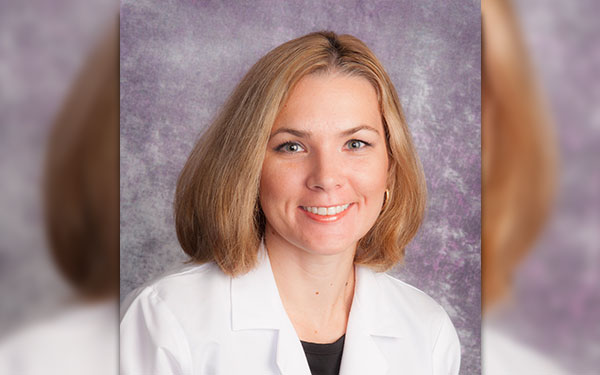Dr. Sean Wharton, an American Board of Obesity Medicine (ABOM) Diplomate, answers questions regarding the importance of an obesity medicine physician.

What unique skill set can the obesity medicine physician bring to the bariatric surgical setting?
Bariatric surgery is still a relatively new surgical field. It differs from other surgeries primarily due to the fact that there are many medical and behavioral interventions that are necessary for a successful outcome. Obesity medicine physicians are uniquely trained to assess and care for a bariatric patient before and after surgery. Many aspects of care could be easily overlooked if a physician is not familiar with the bariatric patient. Facilitating and understanding the need for multidisciplinary care is a part of the obesity medicine physician’s role. Overall this is a unique field that requires specific training.
What impact can the obesity medicine physician have on patient outcomes?
Obesity medicine physicians will ensure bariatric surgery patients are monitored for surgical adverse effects, including the short term complications such as internal herniation, or ulcerations. Over the long term, there are multiple aspects of care that will determine the success of the bariatric surgery, including continued activity prescriptions, emotional counselling, dietary intervention and monitoring of metabolic conditions. Vitamin deficiencies are common post bariatric surgery, but can be avoided with vitamin supplementation and close monitoring. The obesity physician is qualified manage the patient accordingly.
Have you had the experience of working with a bariatric surgeon?
I have worked with many bariatric surgeons and have sent thousands of patients for bariatric surgery in the past years. Working with the patient’s pre and post surgery has been very satisfying. Having a close relationship with the surgical centre to ensure seamless care has been crucial to ensure that there is appropriate follow up. The surgeons are able to spend more time at surgery and less time with follow up when their patients are monitored by an obesity medicine physician.
Are there any clinical findings or evidence based research supporting the value of obesity medicine physicians and bariatric surgeons working together?
The Longitudinal Assessment of Bariatric Surgery (LABS) Consortium study has demonstrated that bariatric surgeons and physicians can work together to ensure the appropriate outcome of surgical patients. This is one study of many surgical studies that include both surgeons and physicians working together to collect data and present the results.
What is the value of working with an ABOM Diplomate specifically?
The field of obesity medicine is still emerging and it is clear that the physicians that spent extra time to acquire the ABOM Diploma have an interest in working with patients that need specialized care. The community of ABOM Diplomates is an important one, as new research is continually shared to ensure that all diplomats continue to expand their knowledge base. I would encourage any bariatric site that is serious about their outcomes to work with physicians that have the ABOM Diploma.
About Dr. Wharton
Dr. Sean Wharton is a physician who has practiced in the Internal Medicine field for more than decade. Dr. Wharton earned his medical degree from the University of Toronto in 2001 and followed that by completing a residency in Internal Medicine at McMaster University in 2005.
It was an interest in ethnicity and medicine that originally inspired Dr. Wharton to study hypertension and, following that, obesity. Dr. Wharton was fortunate enough to study hypertension and obesity under the guidance of Dr. Arya Sharma, a recognized leader in obesity research.
In addition to serving as an internal medicine specialist at Toronto East General Hospital and the Hamilton Health Sciences, Dr. Wharton serves as the medical director at the Wharton Medical Clinic, an evidence-based, OHIP-funded weight management clinic.
At the Wharton Medical Clinic, Dr. Wharton and his staff take an interdisciplinary approach to weight management and improving the health of clinic patients. With a team composed of nutritionists, dieticians and internal medicine specialists, the staff at Wharton Medical Clinic treats obesity, diabetes and cardiovascular risk factors by educating clinic patients and providing them strategies to overcome chronic conditions. Since the Wharton Medical Clinic is OHIP funded, patients of the clinic are not charged.
Treatment practices at the Wharton Medical Clinic follow the Canadian Practice Guidelines in Obesity and the guidelines of the Canadian Diabetes Association.
It is Dr. Wharton’s belief that all individuals struggling with weight management should be educated regarding not only the causes of increased weight, but also ways in which weight management strategies can be effectively implemented. Moreover, it is Dr. Wharton’s belief that weight management and the treatment of obesity is a medical condition that deserves the recognition and assistance from the Canadian health care system. Dr. Wharton has been outspoken about his opinion that obesity and the perception of obesity should be changed from a societal issue to a medical issue deserving of comprehensive, interdisciplinary treatment.
Diabetes management also serves as a focus for Dr. Wharton’s efforts as a doctor, especially considering that 25% of overweight or obese patients also suffer from diabetes.
In addition to being a member of the American Board of Obesity Medicine, Dr. Wharton is also a member of the Royal College of Physicians and Surgeons, the Canadian Obesity Network, and the Canadian Association of Bariatric Surgeons and Physicians.
Obesity research has played a vital part of Dr. Wharton’s career as an internal medicine specialist. Besides serving as the lead author for the Weight Management Section of the Canadian Diabetes Guidelines in 2013, Dr. Wharton has published or contributed to many peer-reviewed articles on a range of weight management and bariatric topics.
In 2012, Dr. Wharton and the Wharton Medical Clinics completed a study of 2,700 patients who were provided free health services at the clinic. The results of the study helped to demonstrate the importance that those struggling with weight management have access to trained professionals. Results of the study were published in the Canadian Family Physician in 2012.






[…] Read more at Walk From Obesity. […]